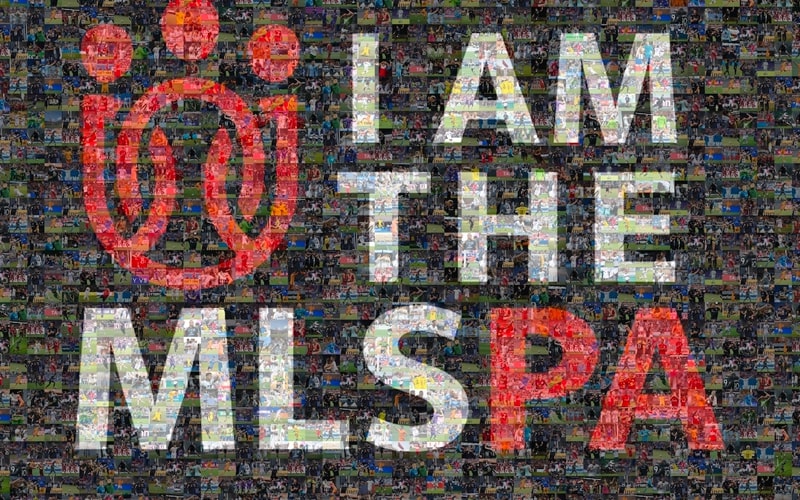The world of soccer, particularly in Major League Soccer (MLS), is not just about athletic prowess and competitive matches; it’s increasingly about playing a significant role in environmental stewardship. As environmental concerns become more pressing, MLS clubs and stadiums are actively adopting various sustainability efforts and eco-friendly practices. This deep dive into these initiatives sheds light on how soccer is contributing to a greener and more sustainable future.
Leading the Charge in Sustainability
Embracing Renewable Energy
A growing number of MLS clubs have made significant strides in embracing renewable energy sources. Solar panels have become a common sight at stadiums, dramatically reducing dependence on fossil fuels. These installations do more than just power the stadiums; they often generate surplus energy, which is fed back into the local grid, contributing to the community’s overall renewable energy supply.
Furthermore, clubs are exploring other forms of renewable energy, such as wind and geothermal power, to further lessen their environmental impact. The integration of these technologies into stadium operations not only reduces carbon footprints but also sets a precedent for other sports organizations to follow.
Water Conservation Techniques
Water conservation is a critical area where MLS clubs are focusing their environmental efforts. Advanced irrigation systems have been implemented to reduce water usage significantly, crucial for maintaining the lush, green pitches without excessive water consumption. Some stadiums have employed sensor-based systems that precisely measure moisture levels, ensuring optimal watering without wastage.
Rainwater harvesting systems are increasingly being installed, enabling the collection and use of rainwater for pitch maintenance. This practice not only conserves water but also reduces stormwater runoff, which is beneficial for the local ecosystems.
Waste Management and Recycling Programs
Waste management and recycling have become a significant part of the sustainability efforts within MLS. Stadiums have deployed comprehensive recycling programs, ensuring that waste generated on match days is sorted and recycled wherever possible. From plastic bottles and food packaging to banners and other materials, extensive efforts are made to minimize landfill waste.
In addition to recycling, some clubs have initiated composting programs for organic waste, like food scraps and grass clippings, turning them into useful compost for landscaping and other purposes. These programs are often coupled with educational campaigns to encourage fans to participate in these recycling efforts.
Eco-Friendly Stadium Design and Construction
The environmental impact of stadiums is being mitigated through eco-friendly design and construction practices. Sustainable materials are being used increasingly in stadium construction, reducing the environmental footprint from the very beginning of a stadium’s life. Energy-efficient designs that maximize natural light and ventilation reduce the need for artificial lighting and air conditioning, thereby conserving energy.
Several MLS stadiums have achieved or are aspiring to achieve Leadership in Energy and Environmental Design (LEED) certification, a globally recognized standard for environmentally responsible building design. These stadiums incorporate features like green roofs, which provide insulation and help manage stormwater runoff, and use of recycled materials in construction.
Transportation: Reducing the Carbon Footprint
Transportation to and from games represents a significant portion of the environmental impact of sporting events. To address this, MLS clubs are encouraging fans to use public transportation, providing incentives like discounted tickets or priority seating for those who do. Bicycle parking facilities encourage fans to cycle to games, reducing vehicle emissions.
For those who drive, carpooling is being promoted, and many stadiums have installed electric vehicle charging stations, encouraging the use of eco-friendlier vehicles. These initiatives not only help in reducing the carbon footprint associated with game days but also promote a culture of environmental consciousness among fans.
Community Engagement and Education
MLS clubs recognize the importance of community engagement in their environmental initiatives. They are actively involved in educating fans and local communities about the importance of sustainability. From hosting environmentally-themed game days to running workshops and seminars on sustainable living, clubs are leveraging their influence to spread awareness.
Partnerships with local schools and environmental organizations are common, providing educational resources and opportunities for young people to get involved in environmental conservation. These efforts extend the reach of the clubs’ environmental initiatives beyond the stadium and into the broader community.
Sustainable Merchandising
The shift towards sustainability is also evident in the merchandising efforts of MLS clubs. Jerseys and other fan merchandise are increasingly being made from recycled materials. The production processes are also being scrutinized for environmental impacts, with clubs opting for suppliers who adhere to sustainable manufacturing practices.
This focus on sustainable merchandising not only reduces the environmental impact of club merchandise but also sends a strong message to fans about the importance of considering the environment in everyday purchases.
Challenges and Opportunities
The journey towards complete sustainability is fraught with challenges. Balancing economic goals with environmental objectives is complex, and the sports industry is no exception. However, MLS’s commitment to overcoming these challenges is evident in its continuous pursuit of innovative solutions.
The league’s efforts present a unique opportunity to set an example for other sports leagues globally. As technology evolves and public awareness increases, there are ample opportunities for MLS to expand its environmental initiatives, further cementing its role as a leader in sports sustainability.
Innovation in Green Technology and Partnerships
Harnessing New Technologies for Sustainability
Innovation in green technology is at the forefront of MLS’s sustainability efforts. The league and its clubs are exploring cutting-edge solutions to further reduce their environmental impact. This includes the adoption of smart stadium technologies that optimize energy and water usage, automatically adjusting to real-time needs and conditions. Additionally, clubs are experimenting with new materials and technologies for pitch maintenance that are more environmentally friendly and efficient.
Artificial intelligence and machine learning are being employed to analyze and optimize various aspects of stadium operations, from energy consumption to waste management. This not only leads to more sustainable practices but also helps in reducing operational costs.
Strategic Partnerships for Environmental Impact
MLS clubs are forming strategic partnerships with environmental organizations and green technology companies. These collaborations aim to leverage external expertise and resources in pursuing ambitious sustainability goals. Partnerships with renewable energy providers, for instance, are enabling clubs to transition more rapidly to clean energy sources.
Such collaborations are not limited to the technological domain; they also encompass community-based environmental initiatives. By working with local and national environmental groups, MLS clubs are involved in projects like tree planting, conservation efforts, and community clean-up programs. These partnerships extend the reach and impact of the league’s sustainability efforts beyond the confines of the stadiums and into the wider community.
These innovative approaches and strategic partnerships demonstrate MLS’s commitment to not just participating in the green movement, but leading it within the sports industry. By staying at the cutting edge of environmental technology and collaboration, MLS is paving the way for a more sustainable future in professional sports.
The Future of Green Soccer
Green Soccer in MLS Looking ahead, the potential for furthering sustainability initiatives within MLS is vast. Reducing single-use plastics at events, exploring new renewable energy sources, and further enhancing waste management practices are just a few areas with room for growth.
The integration of eco-friendly practices into every aspect of soccer, from the stadium to the community, ensures that MLS plays a crucial role in promoting a sustainable future. This commitment to environmental stewardship is setting a benchmark for not just soccer leagues, but for sports organizations around the world.
In conclusion, MLS’s focus on sustainability is both commendable and essential for the future of the sport and the planet. By weaving eco-friendly practices into the fabric of the league, MLS is not only enhancing the matchday experience but also contributing significantly to the global efforts in environmental conservation. This journey towards a greener future in soccer is a testament to the league’s vision and responsibility towards the planet.




